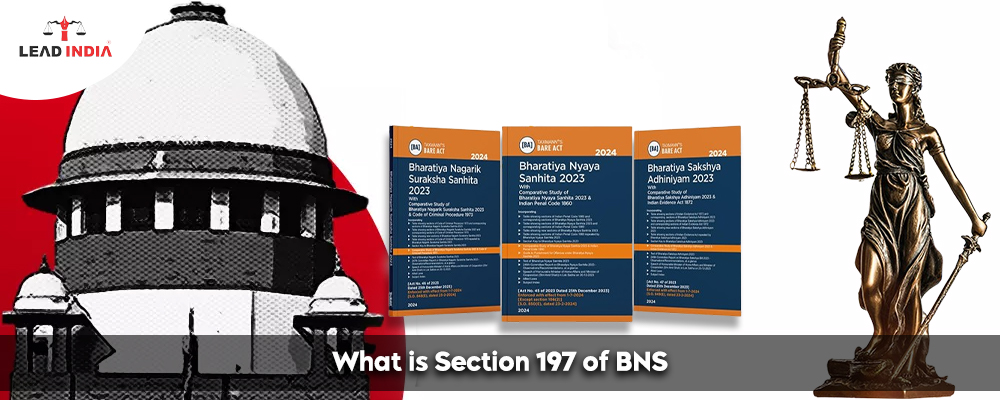India’s citizens are guaranteed several fundamental rights by the country’s constitution. The rights to life, equality, and freedom of speech and expression, which are guaranteed by Articles 21, 14, and 19, respectively, are the most important. It is as crucial, though, that citizens do not abuse these rights. Because of this, there are a number of regulations in place that not only protect against the possible abuse of these fundamental rights but also promote harmony amongst various ethnic and cultural groups.
Numerous rules in the form of limitations or fines are outlined in the Bhartiya Nyaya Sanhita, 2023. The Section 197 of BNS (former Section 153B IPC) aims to punish people who, in the name of their right to free speech and expression, propagate religious hatred.
Specific Changes under Section 197 of BNS: Imputations, assertions prejudicial to national integration
- “Electronic communication” is added as one of the methods of disseminating designated activities under section 197 of the BNS.
- False or misleading information making or publishing that endangers India’s sovereignty, unity, integrity, or security is also covered by Section 197(1)(d) of the BNS.
Need A Legal Advice
The internet is not a lawyer and neither are you. Talk to a real lawyer about your legal issue

Nature of Offence under Section 197 of BNS
- According to BNS Section 197, anybody who intentionally or knowingly incites a riot using illegal methods and knows that doing so could result in the commission of the rioting offense is subject to punishment under this Section.
- The fact that punishment is inevitable even in cases where no riot is perpetrated is the most intriguing feature of this Section.
- This implies that it establishes responsibility even in cases when rioting is not the direct outcome of such provocation.
- A non-cognizable offense, on the other hand, requires the court’s approval before a police officer can make an arrest; a cognizable offense permits the officer to do so without a warrant.
- Furthermore, significant offenses are typically considered to be cognisable offenses, but less serious private wrongs are typically considered non-cognizable offenses.
- Because of this, the offense under Section 197 of BNS is categorized as a cognizable offense, meaning that the accused may be taken into custody without a warrant because it is a serious offense.
Essential Ingredients of Section 197 of BNS
- The signs, remarks, or statements must incite hatred, animosity, and discord among various linguistic, racial, and religious groups.
- Two or more communities must be the source of the purported animosity. According to Section 197 of BNS, merely mentioning the other group is insufficient to warrant punishment.
- Mens rea is required, meaning that the perpetrator must have intended to sow discord and hatred among various social groupings and communities.
- Spoken or written, the remarks must be grave and must offend the group’s or community’s strong religious beliefs.
- “Public order” and “public tranquillity” are interchangeable terms. This indicates that disobedience to regular law and order violations is not considered an offense.
Punishment under Section 197 of BNS
- In light of the gravity of this offense, the accused is subject to a maximum sentence of three years in jail, a fine, or both.
- It’s interesting to remember, though, that if the crime is committed in a house of worship, the same punishment, up to five years in prison, a fine, or both, may apply.
India is home to the most diverse communities and groups since it is a socialist, independent, secular, and religious nation. As a result, the constitution also provides its people with certain essential rights. However, the persistent abuse and exploitation of these rights was a worrying cry for the government to intervene and enact specific protections. The hatred between different groups due to differences in religion is not unusual in a nation known for its variety.
Consequently, the goal of Section 197 of BNS is to achieve “unity in diversity.” Furthermore, it is common knowledge that guaranteed freedom cannot be absolute. As a result, in order to maintain equilibrium and make sure that freedom is not abused in any way, some limitations are required. It is definitely a good idea to introduce laws that are particular to religion. There are still some gaps in this section, though.
One can talk to a lawyer from Lead India for any kind of legal support. In India, free legal advice online can be obtained at Lead India. Along with receiving free legal advice online, one can also ask questions to the experts online free through Lead India.




